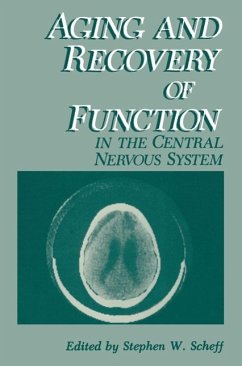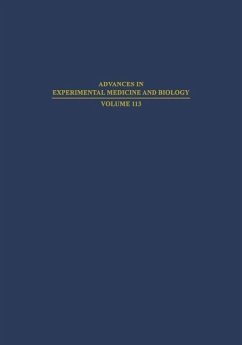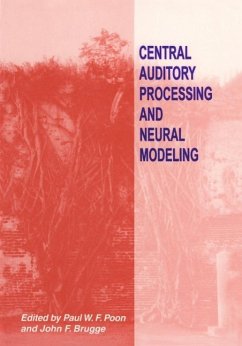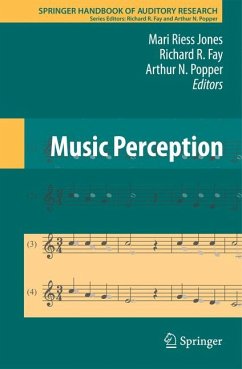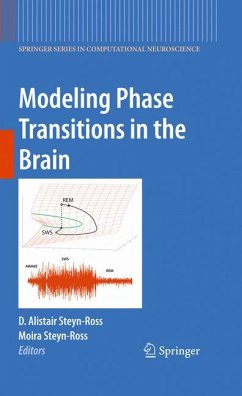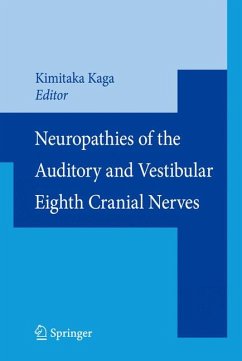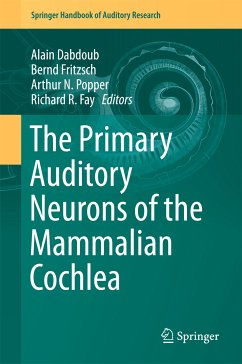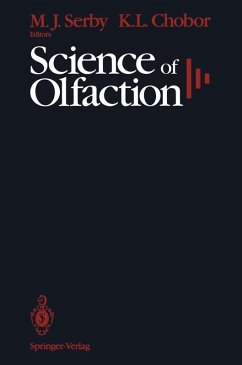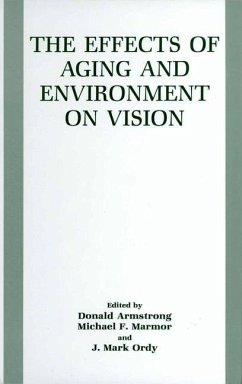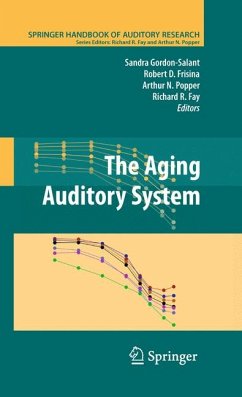
The Aging Auditory System (eBook, PDF)
Versandkostenfrei!
Sofort per Download lieferbar
72,95 €
inkl. MwSt.
Weitere Ausgaben:

PAYBACK Punkte
36 °P sammeln!
This volume brings together noted scientists who study presbycusis from the perspective of complementary disciplines, for a review of the current state of knowledge on the aging auditory system. Age-related hearing loss (ARHL) is one of the top three most common chronic health conditions affecting individuals aged 65 years and older. The high prevalence of age-related hearing loss compels audiologists, otolaryngologists, and auditory neuroscientists alike to understand the neural, genetic and molecular mechanisms underlying this disorder. A comprehensive understanding of these factors is neede...
This volume brings together noted scientists who study presbycusis from the perspective of complementary disciplines, for a review of the current state of knowledge on the aging auditory system. Age-related hearing loss (ARHL) is one of the top three most common chronic health conditions affecting individuals aged 65 years and older. The high prevalence of age-related hearing loss compels audiologists, otolaryngologists, and auditory neuroscientists alike to understand the neural, genetic and molecular mechanisms underlying this disorder. A comprehensive understanding of these factors is needed so that effective prevention, intervention, and rehabilitative strategies can be developed to ameliorate the myriad of behavioral manifestations.
Dieser Download kann aus rechtlichen Gründen nur mit Rechnungsadresse in A, B, BG, CY, CZ, D, DK, EW, E, FIN, F, GR, HR, H, IRL, I, LT, L, LR, M, NL, PL, P, R, S, SLO, SK ausgeliefert werden.



